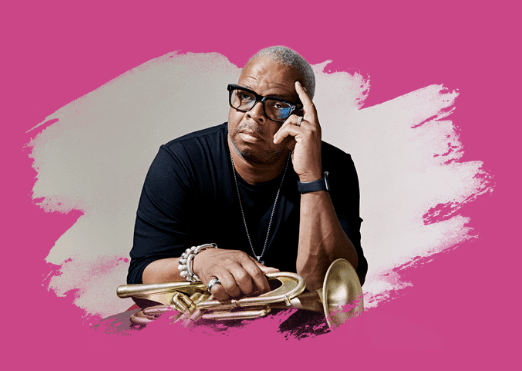The failure of many development initiatives has led some scholars, especially those associated with the post-development and decolonial schools of thought, to call for alternatives to development.
The idea of development is a very influential way of explaining inequalities between different parts of the world. Most people think of some parts of the world as ‘developed’ and others as ‘developing’ and believe that those in the ‘developing’ world need to follow in the footsteps of those ahead of them on a universal path to development.
However, critics of development reject this way of thinking. They believe that development damages the environment and is a form of cultural imperialism and that people should rather look to Indigenous concepts and practices to find alternative ways to live a good life. The African concept of Ubuntu is often mentioned.
This term can be explained with reference to the isiZulu saying ‘umuntu ngumuntu ngabantu’ which means ‘a person is a person through other people’. It entails an ethics of care, compassion and cooperation.
Concepts like Ubuntu are often contrasted with the idea of development. Advocates of alternatives believe that people in the Global South can draw on these concepts, rather than the idea of development, in order to improve their lives.
We both study development and are interested in how communities in Africa understand development, including the question of whether or not people in Africa are pursuing alternatives to development.
Based on our work, we contributed a chapter to a recent book which explores the question of alternatives to development in the Global South. Our contribution to this book looks specifically at the question of how South Africans understand development and Ubuntu and whether they see Ubuntu as a possible alternative to development.
We spoke to people living in four marginalised communities in KwaZulu-Natal and the Eastern Cape. Such communities would be regarded by mainstream development thinkers as in need of development. These communities were also chosen because the people living there would be likely to have some understanding of the concept of Ubuntu as residents are isiZulu or isiXhosa speakers, two of the sociolinguistic groups commonly associated with the idea of Ubuntu.
We found that people in these communities value both development and Ubuntu and see the two concepts as related to each other, but not necessarily in the way that either development or post-development theorists imagine. This study supports our previous research suggesting that people continue to value development.
Respondents’ views on development and Ubuntu
There were some differences in the way in which the communities spoke about development and Ubuntu. The KwaZulu-Natal communities placed emphasis on infrastructure, education and health, when asked to define how they understand development.
Typical responses of KwaZulu-Natal residents to the question ‘What is development?’ included:
-
We want development … in order to have roads, [government housing], clinics and farming initiatives.
-
When we say that a place is developed, we see schools, libraries, roads, churches and clinics.
-
Things like water, houses [government housing], electricity, and sewerage systems.
-
There should be libraries, schools, houses [government housing], water, electricity, sewerage systems and hospitals.
In the Eastern Cape, where only rural respondents were interviewed, residents mentioned infrastructure (roads, houses and schools) less often than those in KwaZulu-Natal and placed greater emphasis on income-generation opportunities, employment opportunities and support for farming. Some of the responses are given below:
-
Development means the creation of jobs to me.
-
Development means building. For example, building creches in the village, planting crops and creating jobs.
-
Development is growth. For example, rearing chickens and other animals for you to grow financially.
When defining Ubuntu, respondents emphasised care, compassion, cooperation, helpfulness, mutual respect, harmony, consideration, dignity and a willingness to share.
Here are some of the typical responses given when people were asked to define Ubuntu:
It is being able to live with one another, you see. A person is a person because of other people kind of thing, and you must get along with all people and there shouldn’t be a person that you hate. You must be able to help another person in need if you can and there must be harmony with everyone.
Ubuntu is about unity and empathy and love, yes. If we speak of Ubuntu, we speak of thinking for each other, and helping each other.
When asked about the relationship between Ubuntu and development, most respondents suggested that Ubuntu and development can and should work together.
Respondents commonly argued that development could best be advanced if people showed Ubuntu, which was presented as an ethic of care and cooperation. Consider the following comment:
[Development and Ubuntu] go hand in hand because when I have something, I have to pull up a person that I see who is struggling and place them at an equal footing with me or maybe higher than me. I don’t look down on them because they are struggling, and I shouldn’t watch them walk to town everyday whilst I have a car that can help them because they are disadvantaged. If I have food, and a fellow person is hungry; I must give them food for free, yes, that is Ubuntu.
The strong sense from our interviews is that people want development (understood as the provision of basic services and the general improvement of their lives) and they want it to be brought about in a way that is characterised by an ethics of Ubuntu (understood as an ethic of care and cooperation).
Advocates of alternatives need to be cautious
Our research suggests that at least some Global South communities engage with concepts like Ubuntu and development in ways that do not support claims that people should abandon development and live according to Indigenous concepts and practices to have a better life. Rather than viewing Ubuntu as an alternative to development, the people we interviewed suggest that development and Ubuntu are complementary.
When seeking to articulate alternatives, it is important to be attentive to what people mean by development and Ubuntu so that activists and scholars from different communities can work together to build better lives for all.
We acknowledge the role of Nhlanhla Mkhutle who conducted the KwaZulu-Natal fieldwork for this study and who co-authored the chapter upon which this article is based.

